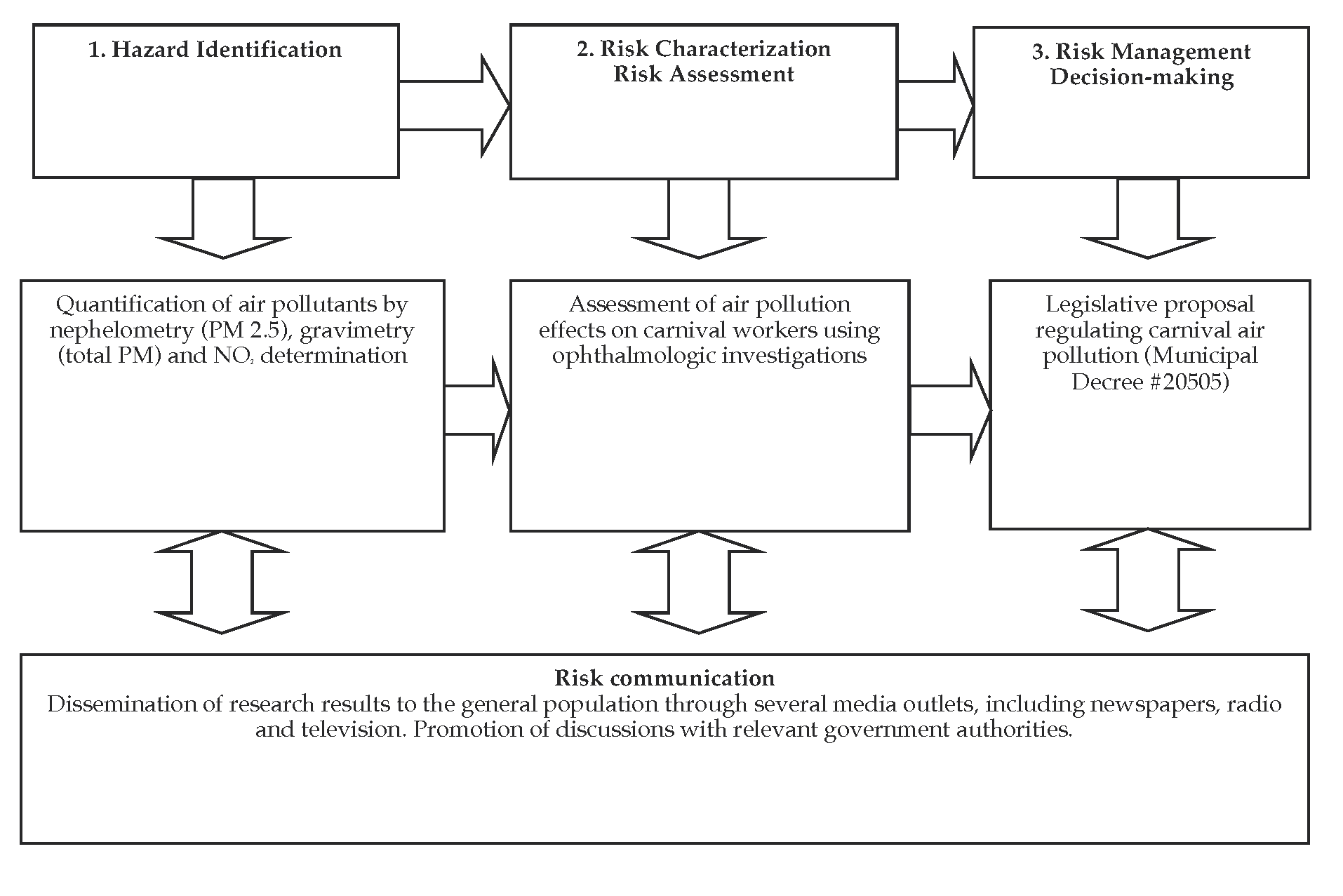Atmospheric pollution arising from diesel-powered engines can result in acute and chronic diseases of the respiratory and cardiovascular systems. The annual carnival festival that takes place in the city of Salvador, Bahia-Brazil, is a large-scale event that gathers approximately 2 m revelers and 170,000 workers who accompany dozens of sound-trucks, or trios elétricos, for a period of seven days. These slow-moving sound-trucks run on diesel fuel, constantly exposing those around them to exhaust fumes. The present study aimed to evaluate air quality along the approximately 10km-long carnival parade circuit and determine possible impacts on human health. We applied a three-phase risk analysis strategy from 2007–2009: 1) hazard identification, 2) risk characterization and 3) risk management. Our quantification of atmospheric particulate matter 2.5 (PM2.5) and nitrogen dioxide (NO2) concentrations revealed variable levels of PM2.5 ranging from 19 µg/m3 to 580 µg/m3, with peaks of up to 800 μg/m3 at sound-truck concentration areas. We then assessed the effects of air pollution on human health using ophthalmologic parameters obtained from 28 carnival volunteers, who often presented symptoms of eye irritation. Finally, we established strategies to communicate the study’s objectives and obtained results to the population through media outlets and open discussions with government agencies. According to our risk analysis, carnival sound-trucks represent the main source of atmospheric PM2.5 and NO2 pollution during the annual 7-day carnival festival. As a consequence of our research, the municipal government of Salvador issued an addendum to its carnival legislation mandating organizers to monitor atmospheric pollution, and, subsequently, all large-scale public events. Municipal government authorities have also promoted a shift from petroleum-based diesel fuel to biodiesel, a less-polluting fuel, for all adapted carnival sound-trucks. Our approach, which employed easily accessible and inexpensive methodology, provided substantial scientific evidence to support improvements in the regulation of air quality during large-scale public events held in the city of Salvador.Keywords: environmental

